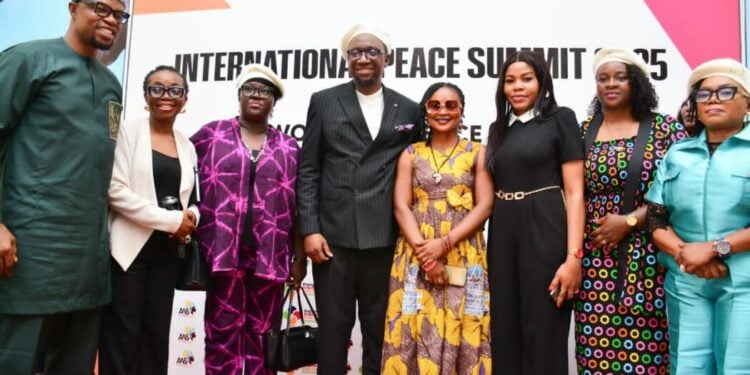In commemoration of 2025 International Day of Peace, a non-governmental organization, Engage Empower Educate Initiative (EEEI) has launched a Peace Manual, a comprehensive tool kit aimed at equipping communities, schools, and leaders with practical strategies for peaceful coexistence in Nigeria and across Africa.
The event which held yesterday in Abuja with the theme “Act Now for a Peaceful World” gathered stakeholders, civil society leaders, peace advocates, and women change-makers calling for immediate action against violence, hate, and inequality across Africa.
Delivering his keynote address, Executive Director of EEEI, Belema Meshack-Hart, emphasised the urgency of taking tangible steps toward peace in communities, schools, and political systems. “We live in a time where peace is under threat, but we must act now—individually and collectively—to change the narrative,” he said.
Meshack-Hart drew parallels between today’s rising intolerance and the 1994 Rwandan Genocide. “In just 100 days, nearly a million lives were lost. That tragedy teaches us what silence and prejudice can do,” he stated.
He praised Rwanda’s strides in memorialization and peacebuilding, particularly the Genocide Memorial in Kigali, which stands as a symbol of healing and prevention through truth-telling and education.
“Peace is not accidental—it is intentional. It begins with remembering, teaching, and choosing a different path.”
Speaking further, he said; “This manual is more than a document—it’s a roadmap to dialogue, conflict resolution, and unity. The Peace Manual is designed for use in classrooms, community forums, and leadership trainings, promoting early intervention and peace education from the ground up.
The event also unveiled the Women Peace Ambassadors Initiative, with a target of training 10 million women peace ambassadors across Africa within a decade.
“Women are often the first victims of conflict—but also the strongest voices for peace. We must invest in their leadership,” he declared.
The initiative positions women at the forefront of dialogue, reconciliation, and post-conflict healing processes, making it one of Africa’s most inclusive peacebuilding programs to date.
On his part, Chief Security and Governance Strategist at the International Centre for Security and Governance Studies, Dr. David Okoror called on women to take a more active role in shaping society and driving sustainable change.
Okoror emphasized that women are often the most affected by government policies, yet remain underrepresented in leadership and conflict resolution spaces.
“Women must dare to move,” he said. “Because of their numbers, their reach, and their capacity to influence, women have the power to prevent conflict and build peace—not just in their communities, but across the region and globally.”
He urged women to stop agonizing or complaining about systemic issues, and instead to organize and confront the challenges facing society. “Believe in yourselves,” he added. “Become the change agents that are essential for driving sustainable businesses and communities.”
The summit also featured a panel session with a resounding message: “Act now. You can do it. You are women—and you can do it better.”



